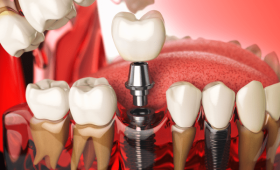How Much Does a Full Set of Veneers Cost in the UK?: Frequently Asked Questions
A full set of veneers is a cosmetic dental treatment designed to transform your smile from start to finish. This treatment improves the color, shape, and size of your teeth, creating a more even and aesthetic smile.
The cost of this treatment in the UK can vary depending on many factors, such as the materials used and the clinic’s location. This content provides answers to 35 of the most frequently asked questions about the cost of a full set of veneers in the UK. It directs readers to contact Cure Holiday to determine the most suitable treatment plan for them.
How Much Does a Full Set of Veneers Cost in the UK?
The cost of a full set of veneers in the UK varies significantly depending on the type of veneer used and the clinic’s pricing. On average, porcelain veneers for one jaw can cost between £5,000 and £12,000. Composite veneers, which are more affordable, can range from £2,100 to £5,000. These prices are an important starting point when determining the total cost of your smile makeover.
What is the Price Difference Between Porcelain and Composite Veneers?
The biggest difference between porcelain and composite veneers is their price and durability. In the UK, porcelain veneers generally cost between £700 and £1,400 per tooth, while composite veneers cost between £350 and £850 per tooth. Porcelain veneers have a higher cost due to their superior durability, stain resistance, and longevity.
Do Prices Vary Depending on the Clinic’s Location?
Yes, the clinic’s location directly affects the price of dental veneers. Clinics in major cities like London typically charge higher prices due to higher operating costs. Outside of London, it’s possible to find the same quality of treatment at more affordable prices. It’s important to consider the city where the clinic is located when getting a price quote.
What is a Full Set of Veneers?
A full set of veneers is a cosmetic dental treatment applied to all the visible teeth in both the upper and lower jaws. It is usually applied to between 6 and 12 teeth. This treatment completely changes the color, size, shape, and alignment of the teeth, giving the patient a brand new, aesthetic smile.
What Are the Most Common Types of Veneers?
The most common types of veneers in the UK are porcelain and composite veneers. Porcelain veneers offer the most natural look, are highly resistant to stains, and can last for 10-15 years. Composite veneers are faster to apply and more affordable, but they are not as durable or long-lasting as porcelain. E-max veneers are a popular type of porcelain that combines durability and aesthetics.
How Much Do E-max Veneers Cost?
E-max veneers are one of the best options for both aesthetics and durability. In the UK, the cost of an E-max veneer per tooth typically ranges from £800 to £1,500. These veneers mimic the light-reflecting properties of natural teeth, providing a very realistic appearance. The cost may be slightly higher than other porcelain veneers, but the quality and aesthetic results make it a worthwhile investment.
What Is Included in the Treatment Price?
The price of a full set of veneers generally covers all stages of the treatment: initial consultation, tooth preparation, taking impressions, fitting temporary veneers, the lab process, and finally, the placement of the permanent veneers. However, each clinic’s pricing policy can be different, so it’s important to learn what is included in the price quote and if there are any additional costs.
Can There Be Additional Costs?
Yes, in some cases, additional costs may arise. For example, if you have issues like tooth decay, gum disease, or a need for root canal treatment before getting veneers, these problems must be treated before the veneer procedure. The costs of these additional treatments may not be included in the main price quote and can increase the total cost.

Are Financing Options Available?
Many UK clinics offer financing options to make a full set of veneers more accessible. Patients can often pay for the treatment costs with installments spread over 12 to 60 months. Some clinics also offer interest-free financing for a specific period (e.g., the first 12 months). These payment plans divide the high cost into manageable installments, making it much easier for patients.
What Is the Cost of Treatment Under the NHS?
The National Health Service (NHS) rarely covers dental veneers, as they are generally considered a cosmetic procedure. Veneer treatment under the NHS is only possible in very special cases (e.g., when a tooth’s color has changed severely or it is broken). In such cases, you pay a fixed NHS fee. However, for most patients, veneers are done at private clinics.
How Long Does the Treatment Process Take?
Porcelain veneer treatment usually takes two or three appointments over approximately 1-3 weeks. In the first appointment, the teeth are prepared and impressions are taken. These impressions are used to create the veneers in a lab. In the second or third appointment, the temporary veneers are removed and the permanent veneers are bonded to the teeth. Composite veneers, however, can be completed in a single appointment.
Is Getting Veneers Painful?
The veneer procedure is painless as it is performed under local anesthesia. Patients do not feel any pain during the procedure. A slight pressure may be felt during tooth preparation. Some mild sensitivity or pain may occur for a few days after the procedure, but this can be easily managed with prescribed painkillers.
Are Veneers Permanent?
The lifespan of veneers depends on the material used and your oral hygiene. Porcelain veneers can last 10-15 years or even longer. The lifespan of composite veneers is usually around 5-7 years. Good oral hygiene and regular dental check-ups extend the life of the veneers.
Is There a Risk of Veneer Failure?
Dental veneer treatment has a very high success rate. However, in rare cases, veneers can chip or fall off. The durability of veneers depends on factors such as teeth grinding habits, biting hard foods, and poor oral hygiene. In case of failure, veneers can be easily repaired or replaced.
Am I a Suitable Candidate for Treatment?
To be a suitable candidate, you need to have good general oral health. If you have large cavities, advanced gum disease, or fillings, these problems must be treated before getting veneers. It’s also important to have a healthy tooth structure to support the veneers. Your dentist will evaluate your suitability during the initial consultation.
Do Veneers Weaken My Teeth?
Veneers do not weaken your teeth as they require minimal tooth reduction. Porcelain veneers, when bonded to the front surface of the tooth, actually provide an extra layer of strength. The purpose of veneers is to preserve the tooth’s structure while achieving an aesthetic appearance.
How Should I Care for My Veneers?
Caring for veneers should be the same as caring for your natural teeth. You should brush your veneers twice a day and floss. You should also avoid excessive consumption of drinks that can cause staining, such as coffee, tea, or red wine. Regular dental check-ups extend the life of your veneers.
Do Veneers Affect Staining and Smoking?
Porcelain veneers are highly resistant to staining. However, smoking can slightly change the color of the veneers over time. Composite veneers are more prone to staining than porcelain. Dentists recommend quitting smoking to extend the life of the veneers and maintain their aesthetic appearance.
What is the Difference Between Full Veneers and Traditional Teeth Whitening?
Teeth whitening only lightens the existing color of the teeth and removes stains. However, it does not correct the shape, size, or alignment of the teeth. Veneers, on the other hand, both completely change the color and fix all aesthetic problems of the teeth, providing a much more comprehensive smile transformation.
How Do I Choose the Right Clinic for Treatment?
To choose the right clinic, you should research the dentist’s experience, the technology they use, and previous patient reviews. Make sure the clinic’s hygiene standards are high and choose a place that provides you with a detailed treatment plan. Also, find out if they offer post-treatment support and warranty services.
What Is the Waiting Time for Veneer Treatment in the UK?
The treatment process for porcelain veneers, including lab time, usually takes a few weeks. However, some private clinics can offer faster appointments and treatment processes. Since composite veneers are completed in a single appointment, the waiting time is shorter.
What Are the Veneer Materials?
The most common materials used for dental veneers are porcelain and composite resin. Porcelain is an aesthetically superior and durable material. Composite resin is more economical and easier to apply. Special types of porcelain like E-max offer the highest quality aesthetic results.
In What Cases Are Veneers Necessary?
Veneers are recommended if you have aesthetic problems with your teeth, such as discoloration, stains, small chips, cracks, gaps between teeth, or minor misalignment. Veneers are a great way to beautify your smile as long as your overall oral health is good.
When Can I Return to Normal Life After Treatment?
Since the veneer procedure is a minimally invasive procedure, you can usually return to your normal life immediately. It may take a few days to get used to your new veneers. During this process, it is recommended to eat soft foods and avoid very hot or cold drinks.

Do Veneers Change My Facial Features?
Dental veneers do not dramatically change your facial features. However, a more aesthetic and fuller smile can make your overall facial appearance younger and more attractive. Your dentist designs the veneers to best suit your facial features.
How Natural Do Veneers Look?
Properly applied veneers are indistinguishable from your natural teeth. Porcelain veneers, in particular, provide a very realistic look as they reflect light just like natural tooth enamel. An experienced dentist carefully designs the color and shape of the veneers to achieve a natural and aesthetic result.
Can I Remove My Veneers?
Since a portion of the tooth enamel is removed, porcelain veneers are an irreversible procedure. When the veneers are removed, your teeth will have been prepared for new veneers, and new ones will need to be placed. Composite veneers, on the other hand, can be more easily repaired and removed.
Is There a Warranty for Dental Veneers?
Many clinics offer a warranty service for the veneers they apply. This warranty varies depending on the quality of the material and the clinic’s policies. If your veneer breaks or falls off, it can be repaired or replaced under warranty. It is important to get detailed information about this from your clinic before starting the treatment.
Is It Wise to Get Treatment Abroad?
Due to the high costs in the UK, many patients choose to travel to countries like Turkey for veneer treatment. Turkey offers high-quality treatment at more affordable prices, experienced dentists, and the opportunity for a vacation.
What Are the Disadvantages of Treatment in the UK?
The biggest disadvantage of dental veneer treatment in the UK is the high cost. Additionally, the limited NHS coverage can make access to treatment difficult. For this reason, many people look for private clinics or options abroad.
Why Are Clinics in the UK So Expensive?
Dental clinics in the UK have higher prices due to high operational costs, expensive insurance premiums, high staff salaries, and strict regulations. This causes treatment costs to increase.
Is Veneer Treatment Applied to Everyone?
No, dental veneers are not suitable for every patient. Additional treatments may be needed before veneers for patients with teeth grinding habits, advanced gum disease, or large cavities. Your dentist will perform a comprehensive examination to determine your suitability.
What Are the Disadvantages of Composite Veneers?
The biggest disadvantages of composite veneers are that they are less durable, more prone to staining, and have a shorter lifespan compared to porcelain veneers.
If you’re looking for an alternative to the high costs in the UK, contact Cure Holiday, and let us create a personalized treatment plan for you to regain your smile.



